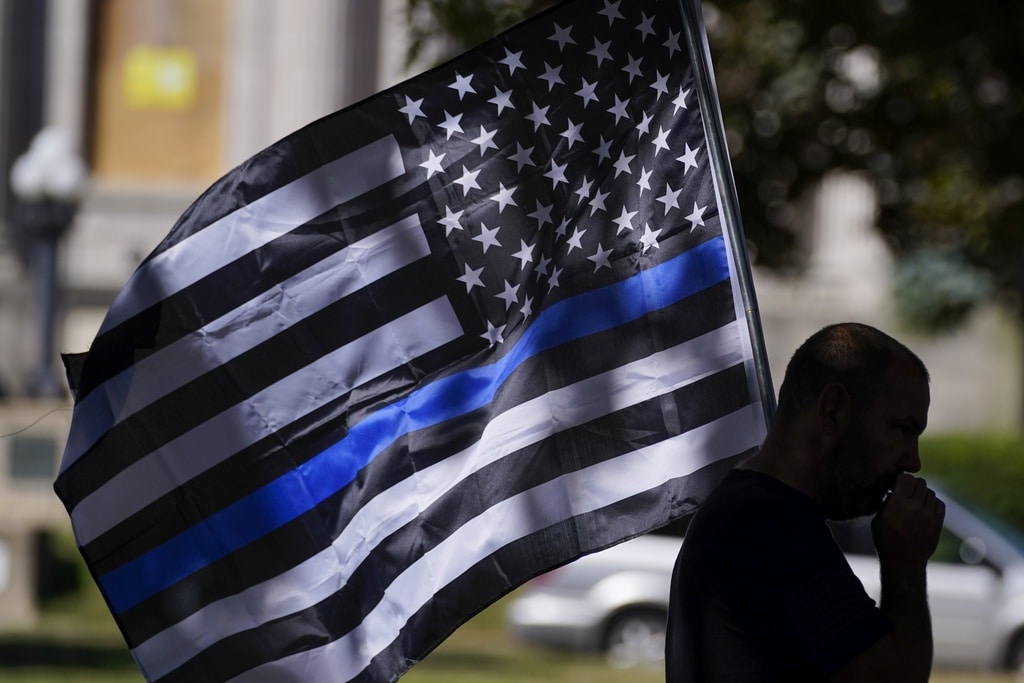The town of Springfield, Pa., violated the First Amendment by prohibiting police officers and other public employees from displaying the Thin Blue Line version of the American flag, a federal appeals court rules.
Several police officers displayed the flag in 2021 because it promotes solidarity within law enforcement and supports police officers. However, the town later balked and passed a resolution “prohibit[ing] the publicly visible display or use of any image which depicts the Thin Blue Line American Flag symbol by any Township employee, agent or consultant.”
Three police officers, who were members of the Fraternal Order of Police Pennsylvania Lodge, challenged this resolution in federal court. A federal district court ruled the resolution unconstitutional.
On appeal, a three-judge panel of the 3rd U.S. Circuit Court of Appeals unanimously agreed in its Jan. 28 decision in Fraternal Order of Police Pennsylvania Lodge v. Town of Springfield.
The town argued that the display of a flag was not speech on a matter of public concern or important, a key requirement in public-employee free-speech cases. Instead, the town contended the speech was private in nature.
The 3rd Circuit rejected this argument, saying the flag touched on important public issues. It also pointed to a prior decision that said wearing Black Lives Matter masks was speech on a matter of public concern.
“Just as wearing masks supporting Black Lives Matter qualifies as speech on matters of public concern, id., so too does the Flag in question here,” the appeals court wrote.
The town also had the burden of showing that displaying the flag would cause disruptions. This the town failed to do, the court found.
The town argued that it had received complaints from some members of the public about the display of the Thin Blue Line flags. But a few grumbles and complaints does not rise to the level of a disruption significant enough to silence the speech, the 3rd Circuit reasoned.
David L. Hudson Jr. teaches First Amendment law and constitutional law classes at Belmont University College of Law. He is the author, co-author, or co-editor of more than 50 books, including The Constitution Explained: A Guide for Every American (Visible Ink Press, 2022) and The First Amendment: Freedom of Speech (Thomson Reuters, 2012).
The Free Speech Center newsletter offers a digest of First Amendment and news-media news every other week. Subscribe for free here: https://bit.ly/3kG9uiJ

